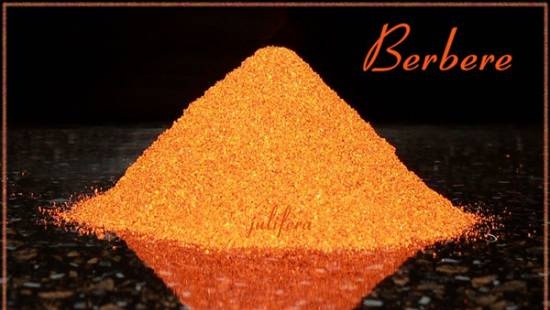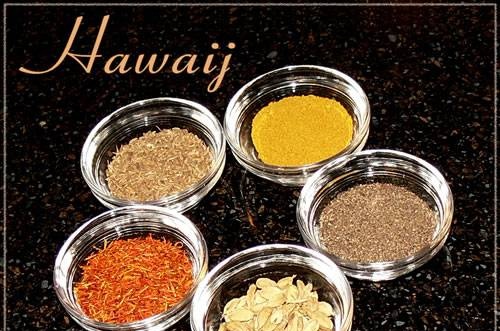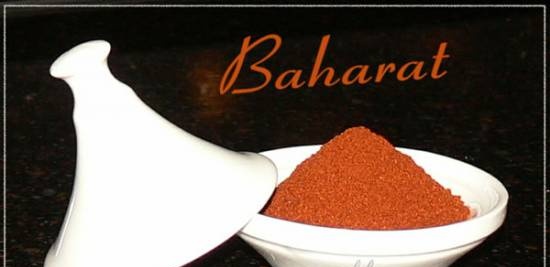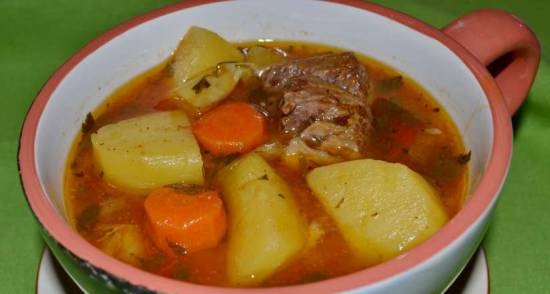|
 Spices, which add a hot and pungent flavor to food, create a thrill. With many of them, dishes get aromas and pleasant colors, and nutrients are easier to digest. Spices, which add a hot and pungent flavor to food, create a thrill. With many of them, dishes get aromas and pleasant colors, and nutrients are easier to digest.
But spices need to be controlled, especially in the spring when stomach activity and the likelihood of ulcers increase. Incorrect use of spices causes morbidity or aggravates pre-existing inflammation, burdening the gallbladder, liver, pancreas, kidneys.
They often aggravate the sensitivity of the nervous system and affect blood pressure. However, should we completely get rid of the spices? Modern dietetics argues that the complete elimination of hot spices from the menu is wrong. It has long been known that the so-called antibiotics from plants (phytoncides) that have horseradish, garlic is a disinfectant for the digestive and respiratory systems. With atrophic gastritis, which occurs with a reduced release of hydrochloric acid and pepsin in the stomach, horseradish, vinegar, lemon, cinnamon are recommended.
Patients with gallbladder disease are allowed to add a little vinegar or lemon juice, boiled onions, sweet peppers to their menu. As you can see, food can be supplemented with some spices, but with strict adherence to the requirements for their dosage.
Be careful with hot chili peppers. He contains vitamins, minerals, organic acids. Hot peppers are very rich in vitamin C. Their healing effect is due to the substance capsaicin, which gives the characteristic taste. This substance causes a burning sensation in the mouth, esophagus and stomach, even when taken in an amount equal to only 1/800 milligram.
Capsaicin, however, intensely stimulates the appetite and induces a deep secretion of saliva in the mouth, as well as gastric, pancreatic and intestinal juices. It also acts as a strong skin irritant. In the area where it appears, it causes strong blood flow and leads to redness. Likewise, capsaicin acts on the mucous membranes of the mouth, esophagus, stomach, and intestines.
The use of red pepper is even more extensive. It contains four times more vitamin C than lemon. Red pepper activates digestive secretions. When using it, we must remember that if we constantly "spur" our digestive glands, they will produce more stomach acid and digestive enzymes. And it drains the gastrointestinal system. A large amount of hydrochloric acid destroys the surface layers of the gastric mucosa and eventually causes the appearance of atrophic gastritis. This is why peppers should be used with extreme caution. It is not suitable for gastrointestinal, liver, biliary, renal, cardiovascular, metabolic and other diseases. For healthy people, the minimum doses are sufficient.
Black pepper is an equally popular spice in the kitchen. It is added to soups, sauces, foods with lean meats, marinades, pates, etc. It contains 1.7% essential oil, vitamin C, as well as piperine and flavonin that add flavor. Black pepper stimulates the glands in the stomach and intestines. It has antimicrobial properties. Grind it correctly just before use, so as not to lose the essential oil. All nutritionists warn that this spice should be consumed in small quantities - no more than 1 grain per serving. Abuse causes thirst, abdominal pain and kidney pain.
 White pepper is produced by removing the outer shell Its chemical composition is similar to that of black pepper, but its taste is weaker.Also, white pepper is milder for the digestive system. White pepper is produced by removing the outer shell Its chemical composition is similar to that of black pepper, but its taste is weaker.Also, white pepper is milder for the digestive system.
Horseradish is a hot spice that is very rich in vitamin C. It also contains essential oil, carbohydrates, and little fat. Its main effect is due to the glycoside. Falling into the digestive tract, synerin undergoes biochemical changes that activate the appetite as a stimulant. In large quantities, it irritates the lining of the stomach and intestines. Doctors recommend that this spice be consumed in an amount that is placed on the tip of a teaspoon.
To reduce its juicy taste, it can be mixed with cream, applesauce, or mayonnaise... Traditional medicine recommends using horseradish roots in the form of juice for people with low stomach acidity. For this purpose, a teaspoon of horseradish juice is mixed with honey or sugar. It is taken with meals three times a day. It is also recommended one teaspoon of juice mixed with honey and grated apples in equal parts for stomach bladders and to increase urine output (urine production). The use of horseradish on sciatica and age spots on the skin is widespread.
At the end of the 20th century, spice combinations such as ketchup, curry, Worcestershire sauce and so on. If they are bought ready-made, you definitely need to know their recipe. Typically, combinations include spicy ingredients that can be harmful. For example, we've all seen kids and teens eat ketchup on pizza and french fries. And this mixture contains nutmeg, bahar, chili, garlic extract and other mouth-watering spices. In large doses, they are extremely unsuitable for the unstable digestive system of children and adolescents. The different types of curries include red pepper, black pepper, garlic powder, etc. Even colored salt is not entirely safe. With every use of spices, it is good to remember the old rule: "Measure is the basis of everything."
Yarmolenko V.O.
|
 Spices, which add a hot and pungent flavor to food, create a thrill. With many of them, dishes get aromas and pleasant colors, and nutrients are easier to digest.
Spices, which add a hot and pungent flavor to food, create a thrill. With many of them, dishes get aromas and pleasant colors, and nutrients are easier to digest.









